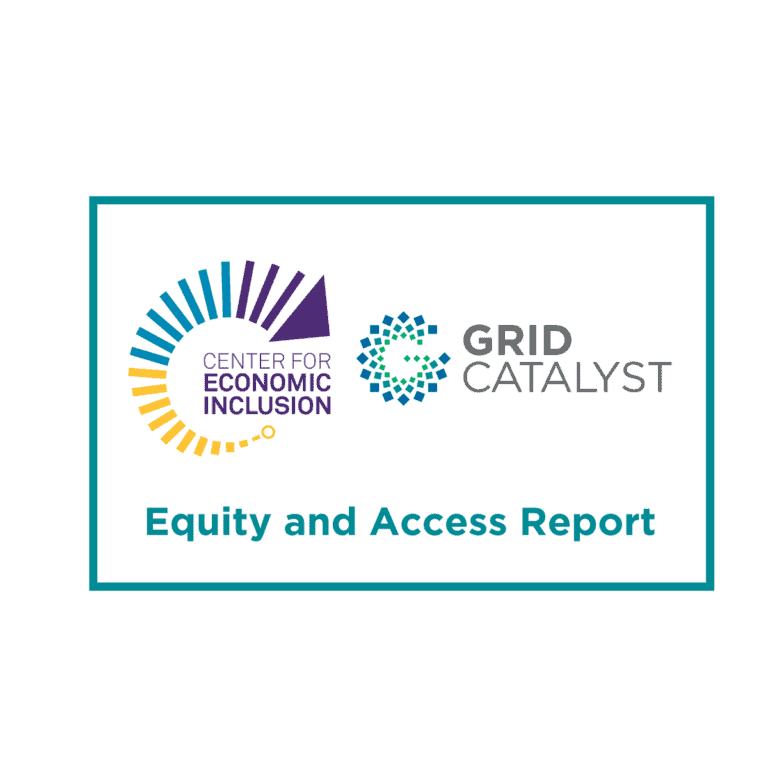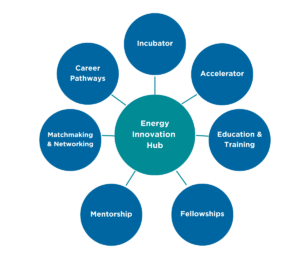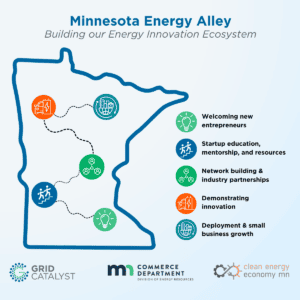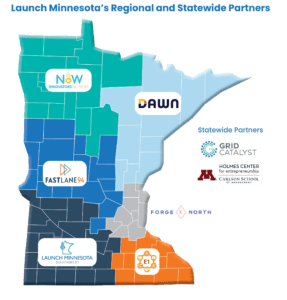Over the last decade, there has been a noticeable shift in the approach to addressing climate change. The surge in investments and adoption of energy and climate technologies may be the obvious trend, but as importantly, we as an industry are recognizing that a just and equitable transition of our systems is essential. Much of the discussion has centered on the deployment of clean energy, but as we build toward a new energy economy, the opportunities and pathways for diverse talent must stretch across all parts of the workforce, from apprenticeship to entrepreneurship.
For Grid Catalyst, we believe it is our responsibility to center equity and access for energy innovation and entrepreneurship at the very foundation of our program. To accomplish this, we turned to the Center for Economic Inclusion to help us understand the challenges that face diverse founders, how those might be unique to energy and climate sectors, and how we can take action that provides resources and pathways to diverse founders. The result of this work is encapsulated in the newly released Equity and Access report that will serve as the roadmap to our programming for years to come.
Understanding the Challenges
To be actionable and accountable, we first needed to analyze and understand the challenges facing diverse founders. The Center highlights these challenges in the report as factors that contribute to the narrow band of who currently works in clean energy entrepreneurship:
- Capital-intensive nature of energy innovation
- Time horizon for research and development
- Technical expertise
- Business knowledge necessary for forging an entrepreneurial endeavor
- Relationships and networks that introduce opportunities and enable success
- Early exposure to STEM and entrepreneurship career pathways
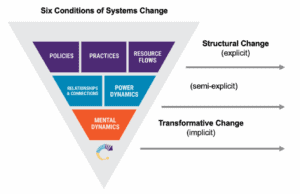
Women and people of color face historic underinvestment and underrepresentation in careers as founders, investors, and in STEM. Even as progress is made in the overall energy workforce, it is clear that we have more work to do to recruit and retain women to the field and to make sure the diverse talent in the workforce has pathways to clean energy leadership, including ownership, c-suite positions, boards of directors, and venture capital and investor profiles. Updated clean energy jobs statistics are available in the 2022 Clean Jobs Midwest report.
Why does it matter?

Increasing pathways and investment in diverse founders has ripple effects across the economy. Diverse perspectives offer great benefits to the development and deployment of cleantech innovation. When those perspectives are stifled, we are limiting the technology solutions needed to address climate change and create new business opportunities. Additionally, the Center notes in the report, “Coupled with the opportunities in the clean energy sector is the economic potential in business ownership. Black, Brown, and women-owned businesses, particularly with equitable investments of intellectual, social, financial and political capital, are critical to building wealth, creating jobs and growing the economy.”
Rather than deciding what a community needs from the outside, the industry needs to shift to:
- Create opportunities for new businesses that can address locally-experienced challenges
- Hire from within communities where the businesses launch
- Encourage adoption of new solutions from within a community and provide community-specific resources to aid that adoption
Addressing the challenges to diverse founders can have great impact across the social, environmental, and economic landscape, if we act with intention.
So what can we (and should we) do about it?
The Center identified several key areas where we can impact the pathways and opportunities for diverse founders. These recommendations center on the development of our Energy Innovation Hub, which can bridge the gap in resources, mentoring, networking, and partnerships by expanding access to:
- Exposure to the field of clean energy
- Exposure to what being an innovator is and sparking interest in building the innovator muscle and mindset
- Pitch opportunities for ideas addressing community identified energy challenges
- Networking and facilitated “match-making” to connect clean energy subject matter experts and business savvy innovators
- Programming, networks, relationships, funding opportunities in clean energy entrepreneurship
- Demonstration projects for ideas that are ready to be tested

To make meaningful progress in these areas, we, along with a circle of partners, are developing several key initiatives for 2023 with a focus on strengthening partnerships in education, entrepreneur training and development for early stage innovators, and developing pathways to late-stage demonstration and commercialization. So many organizations are already working to address inequities in entrepreneurship, education, and the energy workforce and our partnerships will build on their foundation and expertise.
In Partnership
These recommendations highlight the opportunities and priorities that will serve as a roadmap for Grid Catalyst and our partnerships in the coming years. It is our hope that by sharing this information, we can build a larger and stronger collective in this important work. If you or your organization are interested in supporting the Energy Innovation Hub through partnership, mentorship, or sponsorship, please reach out to Nina@Gridcatalyst.org to explore the opportunities and learn more about 2023 programming.
We are incredibly grateful to the team at the Center for Economic Inclusion for their expertise and guidance in developing our Equity and Access platform and for developing this important roadmap.
This report was made possible through the generous support of the Wells Fargo Foundation. We are also extremely grateful to the McKnight Foundation, whose support is enabling the development of our Energy Innovation Hub programming in 2023. Thank you to Clean Energy Economy Minnesota for your partnership in this work and in creating a more equitable future for our sector.



